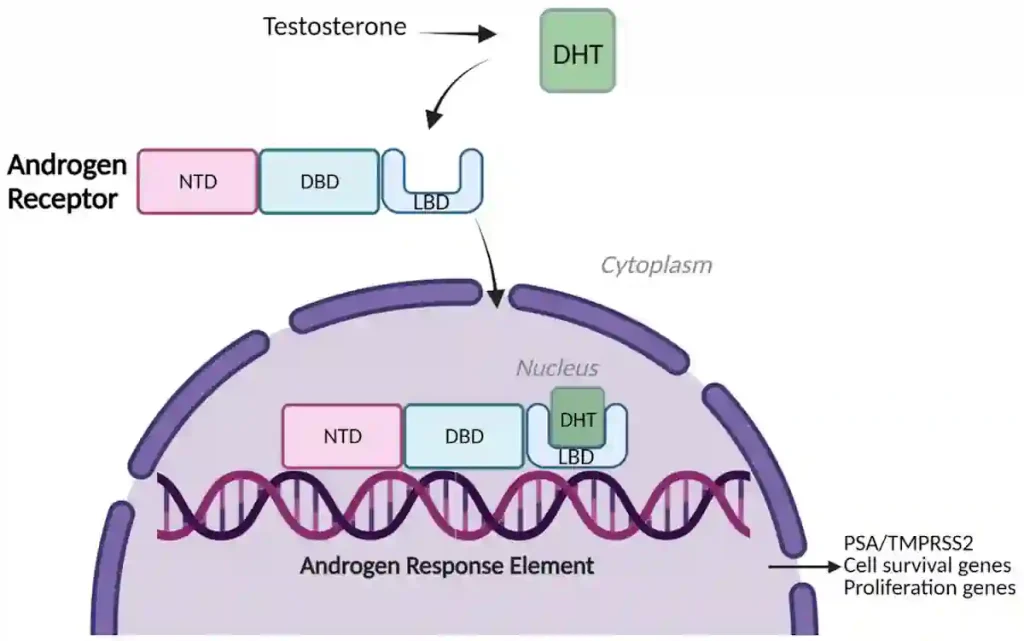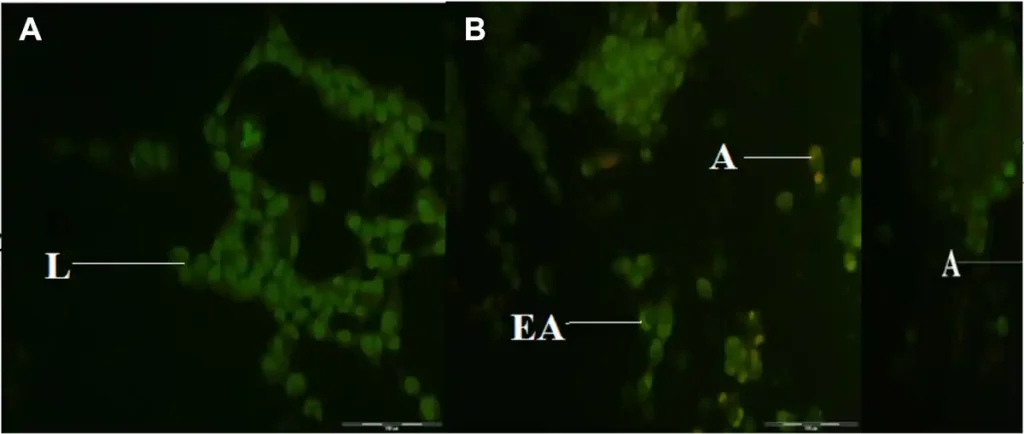The African prune tree (Pygeum africanum, also known as Prunus africana) has a long-standing legacy in botanical medicine. In Europe, its extract has been used as a licensed treatment for benign prostatic hyperplasia (BPH) for decades. Recent research, however, suggests that pygeum may offer more value than just prostate support, extending to other health benefits such as cancer prevention, neuroprotection, immune regulation and healthy ageing.
1. Prostate Health
Pygeum is best known for alleviating urinary symptoms of benign prostatic hyperplasia (BPH), a common condition where an enlarged prostate gland blocks urine flow. In several European countries, Pygeum extract is widely used for managing non-severe cases of BPH. It is often preferred over pharmaceutical drugs due to its better safety profile and tolerability. The therapeutic effect of pygeum is attributed mainly to its anti-androgenic action. Pygeum contains bioactive compounds that bind to and occupy androgen receptors in prostate tissue, thereby preventing excess androgens like dihydrotestosterone (DHT) from overstimulating prostate growth (Figure 1). A meta-analysis of six clinical trials confirmed the efficacy of pygeum: BPH patients treated with it experienced improved urine flow and lower residual bladder volume compared to those treated with placebo. These findings, therefore, support the value of pygeum for maintaining prostate health and treating BPH.

Figure 1. Androgen receptor signalling promotes prostate tissue growth. Testosterone is converted into its more active form, dihydrotestosterone (DHT), which binds to and activates the androgen receptor. Once activated, the receptor enters the cell nucleus and activates genes that promote cell survival and proliferation. Source: Miller et al. (2023), Frontiers in Oncology.
2. Anticancer Potential
Emerging evidence suggests that pygeum also possesses anticancer properties, especially against prostate cancer. These effects are primarily attributed to its bioactive compounds, atraric acid and N-butylbenzenesulfonamide, which can block androgen receptors on prostate cells. As a result, the prostate tumour could not receive the androgen signalling needed for its growth. Preclinical studies demonstrated that pygeum extract could nearly halve the incidence of prostate cancer in animal models, with only 35% of pygeum-treated mice developing cancer compared to 63% in untreated mice. Besides androgen blockage, pygeum has also been shown to induce apoptotic cell death in other types of cancer, including liver, colorectal, breast and even multidrug-resistant cancer cells (Figure 2). Such findings underscore the promising use of pygeum to complement conventional cancer therapy, even in difficult-to-treat cases involving chemotherapy resistance.

Figure 2. Microscopic fluorescence images showing how pygeum extract affected (A) normal vs. (B) liver cancer cells. The green-coloured cells are healthy (L for live), while the yellow and orange ones are in the process of dying through apoptosis (A for apoptosis; EA for early apoptosis). Treatment with pygeum extract caused more cancer cells to die through apoptosis (right), while healthy cells remained mostly unaffected (left). Scale bar = 100 µm. Source: Maiyo et al. (2016), African Journal of Traditional, Complementary and Alternative Medicines.
3. Neuroprotection and Cognitive Health
More recently, scientists have discovered that pygeum extract also exerts neuroprotective effects. A 2022 study found that mice with cognitive impairments demonstrated significant improvements in cognitive function when treated with pygeum extract, performing on par with those given donepezil, a standard drug for Alzheimer’s disease (AD). Mechanistic analyses revealed that pygeum possesses anti-cholinesterase activity, which inhibits the enzyme cholinesterase. This enzyme breaks down acetylcholine, a neurotransmitter critical for cognitive functions. As follows, anti-cholinesterase drugs like donepezil represent the first-line pharmacological treatment for AD. Further evidence suggests that pygeum may reduce neuroinflammation and oxidative stress in brain tissue, which are also known contributors to neurodegeneration.
4. Antioxidant and Anti-inflammatory
The antioxidant-, anti-inflammatory-, and immunomodulatory properties of pygeum further position pygeum as a versatile plant extract for overall health. Research shows that pygeum extract neutralises free radicals to reduce oxidative stress and reduces inflammatory cytokines to modulate immune responses, contributing to its protective effects against various chronic inflammatory conditions, including BPH, cancer and neurodegenerative diseases. A more recent study showed that pygeum extract managed to decrease the secretion of pro-inflammatory cytokines from the immune cells isolated from blood donors. Overall, these results reinforce the ability of pygeum to mitigate systemic inflammatory burden, a key driver of biological ageing and chronic diseases.
